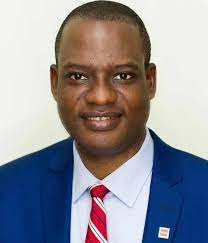…..Proposes Change Of FIRS To NRS, Daily Revenue Sharing To Tiers Of Govt
The The Chairman of the Presidential Committee on Fiscal Policy and Tax Reforms, Mr, Taiwo Oyedele, today explained that the primary goal of the current efforts of the committee given its mandate was to reduce multiplicity of taxes and other abuses in the fiscal system to the barest minimum and by so doing, create a more fiscal policy-supportive environment for businesses to grow and reduce the sundry burden on tax payers to lift millions of Nigerians out of poverty trap.
Oyedele, who made this remark during his interactive session with journalists in Abuja, maintained that the need for the governments to embrace this fiscal policy option had become imperative in view of the challenges of effective tax administration in the country, the accruable revenue losses associated with inefficiencies of tax administration and the high rates of taxes which remained among the highest globally.
The tax expert, who described the committee as an advisory body with the assurance of government that its proposals would be considered for implementation, pointed out with the current CIT at about 30% and several other levies being paid by business owners, the committee found that sustaining these fiscal trend would be damaging to the economy and the socioeconomic well-being of the citizenry.
He explained that broadly speaking, the committee’s four pillars of recommendations based on its findings over the nine months since its inauguration revolve round education, poverty, health and electricity, stressing that if revenues are prioritized in these key sectors, then Nigeria’s poverty rate will be reduced and the economy will be positioned on the path of sustainable growth in the years ahead.
He said: “The basic principle in tax administration is that you cannot be taxing poverty and achieve economic growth. Taxes are to be imposed or used to create prosperity.”
Oyedele hinted that the committee had proposed the exemption of manufacturers and farmers from paying Withholding Tax (WHT), a reduction of the CIT from about 30% now to 25% within the next one year, the restructuring of the yearly budgets to prioritise critical infrastructure and human capital development, elimination of multiplicity of taxes in aviation and other key sectors as well as the deployment of right technologies to curb tax evasion, particularly among the rich, who today the committee’s findings showed that less than 10% pay taxes.
According to him, to ensure efficient tax administration in the country, the committee has also completed a Draft National Tax Policy 2024 with specific thrusts in fair taxation, responsible spending and moderated borrowing as part of its current efforts to improve the fiscal system, particularly to reduce the nation’s borrowing spree and boost the tax-to-GDP ratio.
On the WHT administration which he described as most difficult tax to comply with by tax payers due to its complex structure, Oyedele hinted that the committee’s proposal to exempt real sector operators and farmers and agribusiness owners from paying it would minimize the tax burden on businesses.
He clarified: “We set out the objectives of what we want to do with withholding tax regulation. One of them is to simplify the tax, We want to reduce the burden on businesses, promote competitiveness, equity and ease of compliance and tax avoidance, detect tax evasion and reflect what is happening globally.”
The tax expert, while responding to questions on what the committee is proposing as WHT exemption for categories of businesses, said that the committee aimed at “creating an exemption for withholding tax for small businesses and what we have in mind is N50 million”, adding that it has also proposed the reduction for big businesses to as low as 2%.
On the frequent changes of Customs’ import duties exchange rates which had been a major complaint of manufacturers and other import-dependent business owners in the country, the committee chairman said the committee had proposed the pegging of the Customs duties exchange rate at N800/$1 as approved in the 2024 budget.
Oyedele also spoke on other proposals by the committee, including the need to change the name of the Federal Inland Revenue Service (FIRS) to Nigeria Revenue Service since “the agency’s revenue collection mandate encompasses revenues at national and sub-national levels and not necessarily the Federal Government’s revenue alone.”
This is even as he hinted that as opposed to the current practice in which revenues collected by the revenue agencies are shared monthly by the tiers of government with the attendant negative implications for the nation’s inflation rate, the committee had also proposed the daily sharing of the revenues to moderate the rising price level in the economy.
To ensure that all critical stakeholders’ inputs are sourced in the committee’s ongoing fiscal reformative drive nationwide, Oyedele confirmed that the committee had been engaging critical stakeholders in the organised private sector (OPS), trader groups, farmers’ associations, maritime players, the Central Bank of Nigeria (CBN), the fiscal authorities at national and sub-national levels and the National Assembly, among others over the past months of its public engagements on its mandate.
The committee chairman solicited the support of the media on accurate enlightenment of the Nigerian public, particularly the tax payers, on the mandate and current reform measures being proposed by the committee in order to keep them well-informed and elicit their support in its effort to create a more conducive environment for businesses and enhance the socioeconomic welfare of the citizenry.






